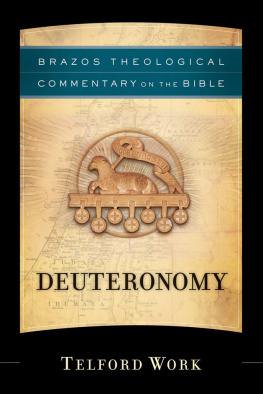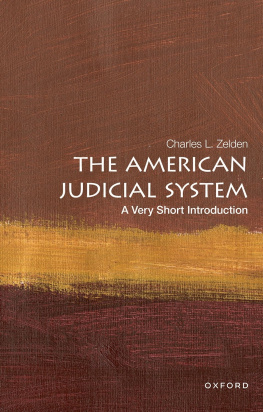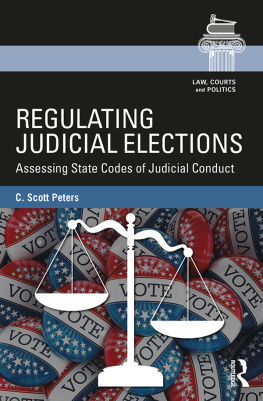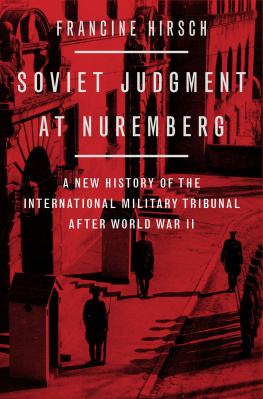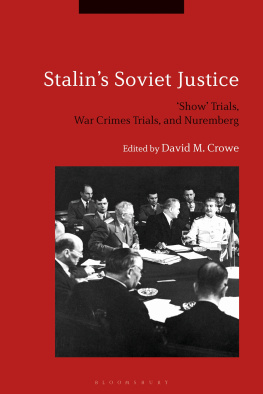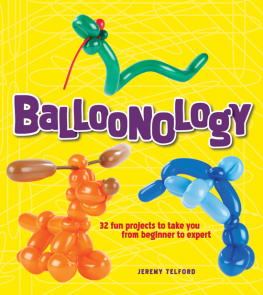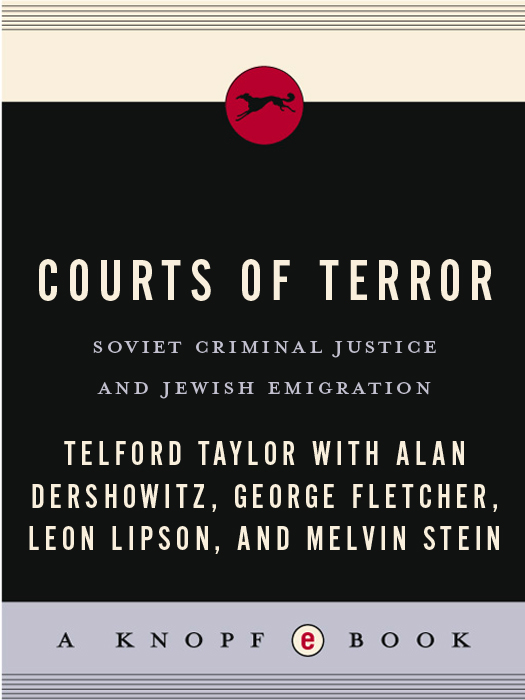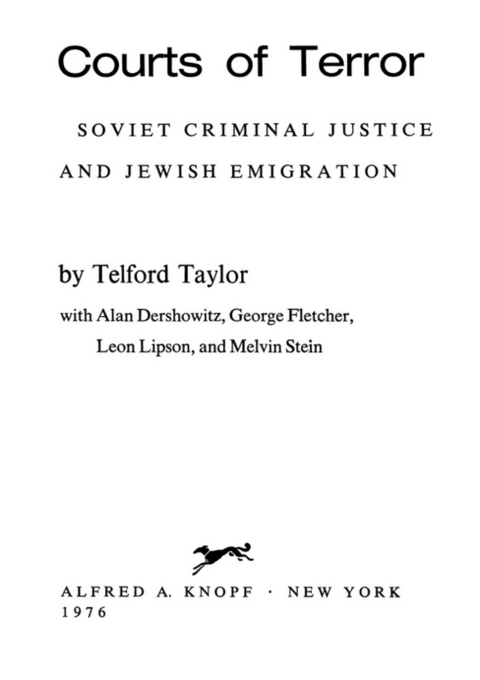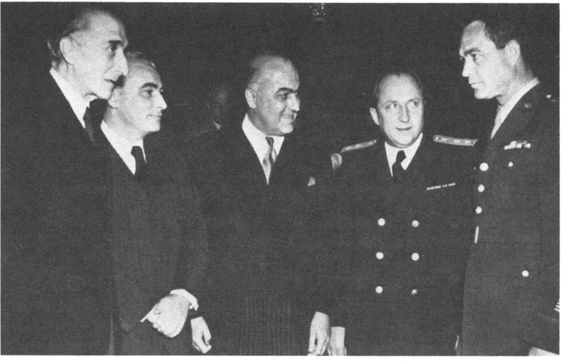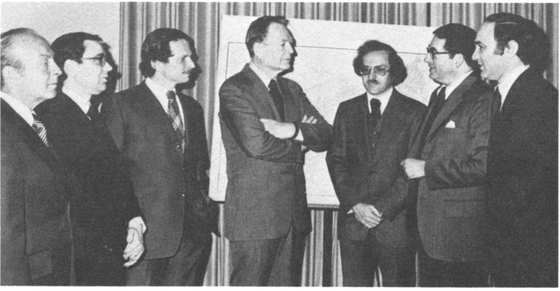Telford Taylor - Courts of Terror
Here you can read online Telford Taylor - Courts of Terror full text of the book (entire story) in english for free. Download pdf and epub, get meaning, cover and reviews about this ebook. year: 2012, publisher: Knopf Doubleday Publishing Group, genre: Politics. Description of the work, (preface) as well as reviews are available. Best literature library LitArk.com created for fans of good reading and offers a wide selection of genres:
Romance novel
Science fiction
Adventure
Detective
Science
History
Home and family
Prose
Art
Politics
Computer
Non-fiction
Religion
Business
Children
Humor
Choose a favorite category and find really read worthwhile books. Enjoy immersion in the world of imagination, feel the emotions of the characters or learn something new for yourself, make an fascinating discovery.

- Book:Courts of Terror
- Author:
- Publisher:Knopf Doubleday Publishing Group
- Genre:
- Year:2012
- Rating:4 / 5
- Favourites:Add to favourites
- Your mark:
Courts of Terror: summary, description and annotation
We offer to read an annotation, description, summary or preface (depends on what the author of the book "Courts of Terror" wrote himself). If you haven't found the necessary information about the book — write in the comments, we will try to find it.
The true quality of a judicial system is best measured by its resistance to stress, whether caused by community, racial, or other prejudice, or by the pressure of state political policies and interests.
Telford Taylor
Working in secret for the past several years, a group of distinguished American attorneys, including university law professors, has mounted an intensive campaign to secure the release of a score of Russians, most of them Jews attempting to emigrate to Israel, who have been incarcerated in Soviet prisons on a variety of trumped-up charges.
Telford Taylor, prosecutor at the Nuremberg war trials and now professor of law at Columbia University, is one of these lawyers. In this book he makes public how he and his colleaguesamong them Alan Dershowitz, Leon Lipson, George Fletcher, and Melvin Steinhave challenged the Soviet judicial system on its own legal grounds, and how the Soviet Union has subverted its own rules for the conduct of trials and the confinement of prisoners in order to accommodate a government policy of discouraging emigration without appearing to prohibit it.
The author tells how he and his fellow attorneys prepared and presented to Russian officials petitions containing documentation of false indictments and twisted trial procedures. In one case, a factory mechanic, Isaac Shkolnik, accused of spying for the British, was brought to trialwhen the British government denied the accusationon charges of spying for Israel. In another, a carpenter, Pinkhas Pinkhasov, was tried and imprisoned for overpricing his services after his emigration permit had been issued. Taylor discloses how in case after case, trial after trial, charges have been fabricated, defendants have been denied counsel of their choice, and witnesses requested by the defense have been barred from testifyingall in clear defiance of Soviet law.
Andperhaps the most appalling of his revelationshe brings to light the shocking abuse of Jewish prisoners in the camps at the hands of ling-time inmates who were sentenced at the end of World War II for Nazi activities and who by virtue of seniority have become trusties with power to discipline the newcomers.
As of early 1976, despite the arduous labors of the American attorneys, despite their visits to Moscow to make personal appeals to Soviet officials (highlighted in Taylors account of his dramatic meeting with Roman Rudenko, now the Kremlins Procurator General, who served with him as a prosecutor at Nuremberg thirty years ago), only two of the prisoners had achieved early release in possibly unrelated actions. Courts of Terror documents with stinging force how a judicial system can beand has beenperverted to serve the political purposes of totalitarian state. It is published to set forth the facts, and in hope of opening up new ways to action on behalf of the men who are still unjustly held prisoner.
Telford Taylor: author's other books
Who wrote Courts of Terror? Find out the surname, the name of the author of the book and a list of all author's works by series.


